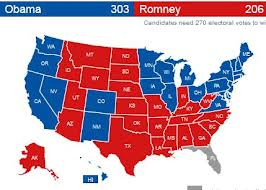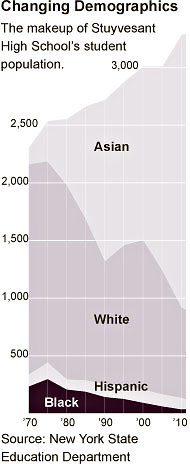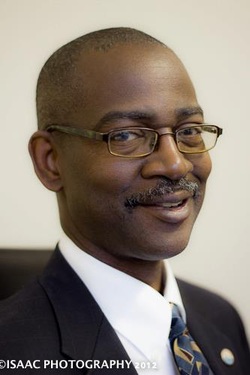Before I get too far into it. Here's some background information from the U.S. Electoral College's website: The Electoral College is a process, not a place. The founding fathers established it in the Constitution as a compromise between election of the President by a vote in Congress and election of the President by a popular vote of qualified citizens. From Wikipedia: Presidential electors are selected on a state-by-state basis, as determined by the laws of each state. Generally (with Maine and Nebraska being the exceptions), each state appoints its electors on a winner-take-all basis, based on the statewide popular vote on Election Day. Although ballots list the names of the presidential candidates, voters within the 50 states and Washington, D.C. actually choose electors for their state when they vote for President and Vice President. These presidential electors in turn cast electoral votes for those two offices. Even though the aggregate national popular vote is calculated by state officials and media organizations, the national popular vote is not the basis for electing a President or Vice President. Are you being bombarded by too much information from social media sites?
Are you knee deep in information overload? Is all of this information lulling you to sleep? Maybe you need to....  Go to school, work hard, get a good education so that you can get a good job. That's what most of my generation heard as we were growing up. For most of us that was sound advice but is it still valid? Schools are being closed, college costs are skyrocketing, and good jobs are few and far between. I think it's time for us to reevaluate what we're telling our students. I don't think we're preparing them to thrive in the real world. I think there should be more emphasis placed on teaching students about personal finances. Students should be encouraged to learn about investing and managing their money. They should understand how to manage debt. We need to encourage students to become producers not consumers. We need to cultivate an entrepreneurial spirit within them. Consumers do not create wealth, they make everyone else wealthy. Getting a good job makes you a better consumer.  In September 2012 I wrote an article entitled "Racially Based High School Entrance Exams?" I was not in agreement with the lawsuit being filed by the NAACP Legal Defense Fund (LDF), Latino Justice PRLDEF and The Center for Law and Social Justice at Medgar Evers College against my alma mater, one of the "elite" schools in NYC, Stuyvesant High School. I did not buy in to the concept that a standardized entrance exam could be racially biased. After all, I took the exam and passed. I went to Stuyvesant and graduated in 1975. How could things be worse now than they were close to forty years ago. I was so wrong. The year that I graduated was the high water mark for Black and Latino student enrollment at Stuyvesant. Since then it's been a downward spiral. In a March 2012 Huffington Post Blog Stuyvesant alumni Richard Buery writes:
 I'm outraged. When I'm told there is not a racial distrust of President Obama. When I'm told we live in a post racial society and there's no longer a need for Section 5 of the Voting Rights Act. When I told Affirmative Action has run it's course and it's time for us to move on. When I'm told there is no organized voter suppression plan. When I have to read about this: On Monday, first lady Michelle Obama had a question and answer session on Twitter focused on her campaign for healthy kids. On Tuesday the Daily Kos published an article documenting some of the remarks that were posted under the hashtag #AskFLOTUS. |
EditorErnest R. Heyward is the Founder and President of the Marketplace for Social Awareness and Social Responsibility Inc. Categories
All
Archives
June 2020
|
MARKETPLACE FOR SOCIAL AWARENESS AND SOCIAL RESPONSIBILITY INC.





